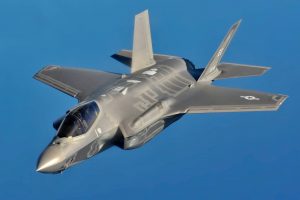The Gulf grapples with Iran-Israel relations, navigating neutrality, calls for a Palestinian state, and peace efforts with Israel.
Summary: The Gulf faces a complex situation concerning Iran-Israel relations, highlighted by recent meetings and interactions between key players. The Gulf states have vowed to maintain neutrality in the conflict, despite historical opposition to Iran and support for Israel. Calls for a Palestinian state have intensified, emphasizing the delicate balance the Gulf must navigate. Saudi Arabia’s stance on peace and normalization talks with Israel has been reiterated, amid concerns over escalating tensions and potential Israeli strikes on Iran. The region’s future hinges on U. S. policy toward Iran and ongoing efforts to prevent a wider conflict with devastating consequences.
The simultaneous occurrence of an emergency meeting of Gulf foreign ministers in Doha on October 2, and the visit of Iranian President Masoud Pezeshkian to meet with Qatar’s Emir Sheikh Tamim, attracted significant attention. This development brought the Gulf states’ stance into focus, especially regarding their response to rising tensions following Nasrallah’s death and Iran’s missile strikes on Israel.
Reports from the Doha meeting indicated that representatives from Qatar, Saudi Arabia, UAE, Bahrain, and Kuwait assured Iran that the Gulf nations would maintain ‘absolute neutrality’ in the conflict, pledging not to permit the use of their air bases by the US against Iran. This further highlighted the Gulf’s precarious position.
Despite being part of the Sunni Gulf Cooperation Council (GCC) that traditionally opposes Iran and its Shiite allies, these nations had also classified Hezbollah as a terrorist group in 2016. However, they disapprove of Israel’s actions that heighten tensions. Since October 7, there’s been a growing call for the establishment of an independent Palestinian state as the only path to lasting stability and prosperity in the region. This reflects the delicate balancing act the Gulf states must perform.
Saudi Foreign Minister Prince Faisal bin Farhan, in a Financial Times article, reiterated the importance of a Palestinian state for peace, underlining Riyadh’s position on Saudi-Israel normalization talks, which had been stalled since October 7. This statement followed Crown Prince Mohammed bin Salman’s reported disinterest in the Palestinian issue.
While Gulf leaders offer humanitarian and political support for the Palestinian cause, it’s clear that beyond rhetoric, substantial aid remains limited, even after recent escalations. Meanwhile, the Gulf states face growing concerns over Israel’s increasing aggression. Nations like Bahrain and the UAE, which have previously taken steps toward normalizing ties with Israel, along with Saudi Arabia, are now confronted by Israel’s relentless actions as well as the ever-present threat posed by Iran. Qatar’s Minister Lulwah al-Khatir captured this sentiment by describing Israel as an “unstoppable force,” warning that the conflict could spread across the Arab world if left unchecked.
Another pressing concern is Israel’s potential strike on Iran’s oil infrastructure, which would further destabilize the region. For years, Gulf states have sought to curb Iran’s influence, but they now fear the consequences of unchecked Israeli aggression or a decisive victory.
Gulf nations face a tough decision: Should they exploit Iran’s vulnerabilities, or will a weakened Iran leave Israel unchecked? Iran-Saudi relations, recently improved through China-brokered reconciliation in 2023, remain key to regional stability. Saudi Arabia’s outreach to Iran—evident in President Pezeshkian’s visit and the inclusion of Iranian pilgrims—signals a shift from the previous hardline stance, particularly in light of Saudi struggles in Yemen.
Gulf expert Dr. Dania Thafer highlights that while Gulf leaders may quietly welcome Nasrallah’s death, their primary focus is on preventing a broader Iran-Israel or Iran-U.S. war, which would have catastrophic implications for their economies and security. The recent normalization of Gulf-Iran ties has provided some protection, but proximity to Iran still leaves vital Gulf oil and gas infrastructure vulnerable. The future of U.S. policy toward Iran, especially after the November 5 elections, will be crucial in shaping the region’s next steps.






